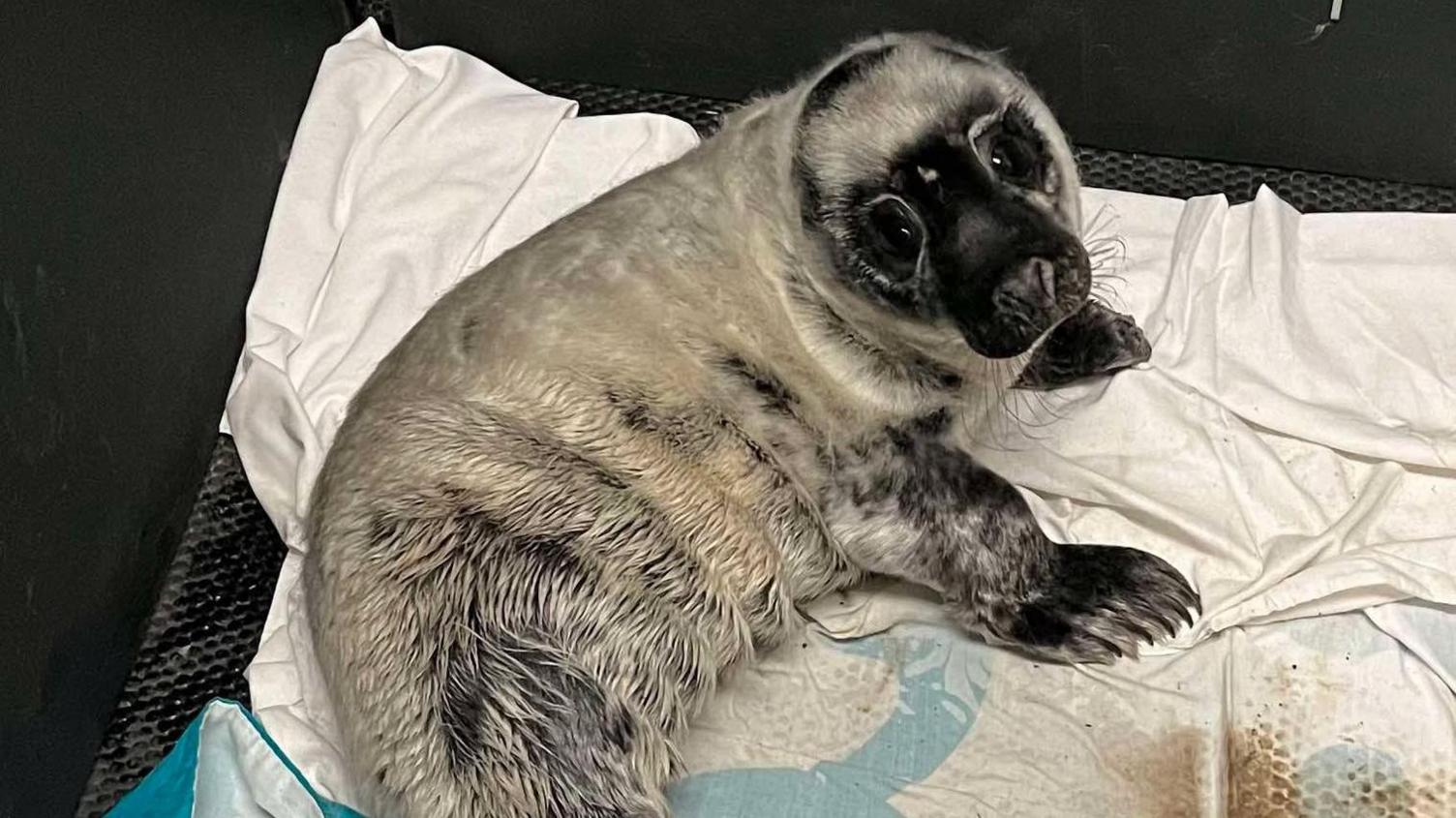Injured and rescued seals helped at new centre

The triage centre has helped about 40 seals in its first eight weeks
- Published
About 40 injured and rescued seals have been helped at a new centre in its first eight weeks of opening.
The North East Seal Triage unit (NEST) in Morpeth, Northumberland, helps seals survive ordeals including getting entangled in fishing nets.
Debbie Harrison, Northumberland coordinator for the British Divers Marine Life Rescue (BDMLR), said it had been "non-stop" with grey seal birthing season still at its height.
"We didn't expect it, we knew it would be busy, but we didn't expect it to be this busy," Ms Harrison said.
"Obviously, sadly, there are some deaths and we have to put some to sleep, but very few," Ms Harrison said.
"Some have gone for further rehab which takes a few months, but the majority we've treated successfully."

Brenda spent three weeks at NEST after being found entangled in a fishing net
On Friday the team released female seal Brenda who had been at the unit for three weeks after she was found entangled in a fishing net.
She had a large, infected wound on her neck which required a lot of care.
Ms Harrison said Brenda had thrived since being rescued and had been eating the centre "out of house and home" - the weekly fish bill for her was £150.
However, Ms Harrison said there was not "a dry eye" among the medics when she was released.
When she arrived she weighed 23kg (50.7lbs) and left having reached a healthier 33kg (72.5lbs).
"It can cost a lot of money," Ms Harrison said.
"Seal rehab is very expensive to provide."

Ms Harrison said there was not "a dry eye" among medics when Brenda was released
Ms Harrison said demand for the centre's service was still high and showing no signs of slowing down.
"It's like a carousel at the moment but it should stop at some point and go quieter before the common seal season starts.
"But we're not seeing that yet."
Follow BBC North East on X, external, Facebook, external, Nextdoor and Instagram, external.
Get in touch
Do you have a story suggestion for BBC Tyne?
- Published7 December 2024
